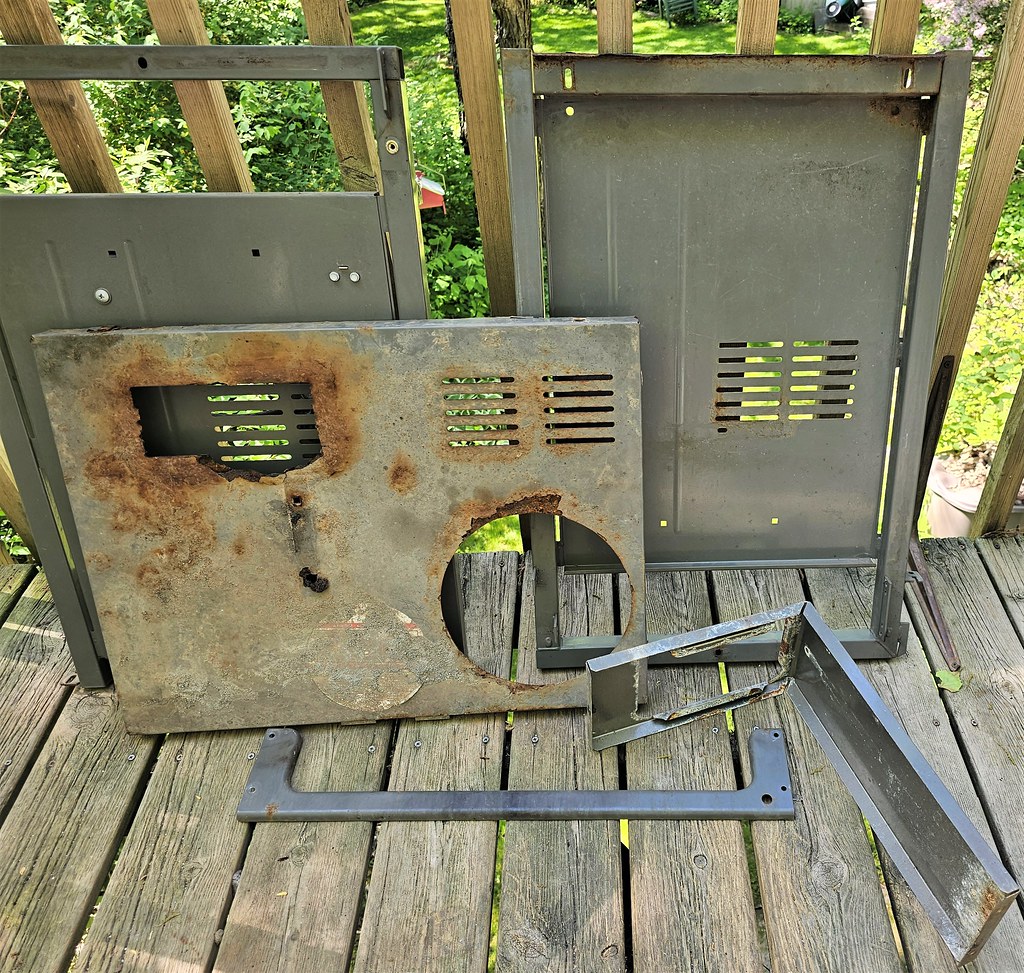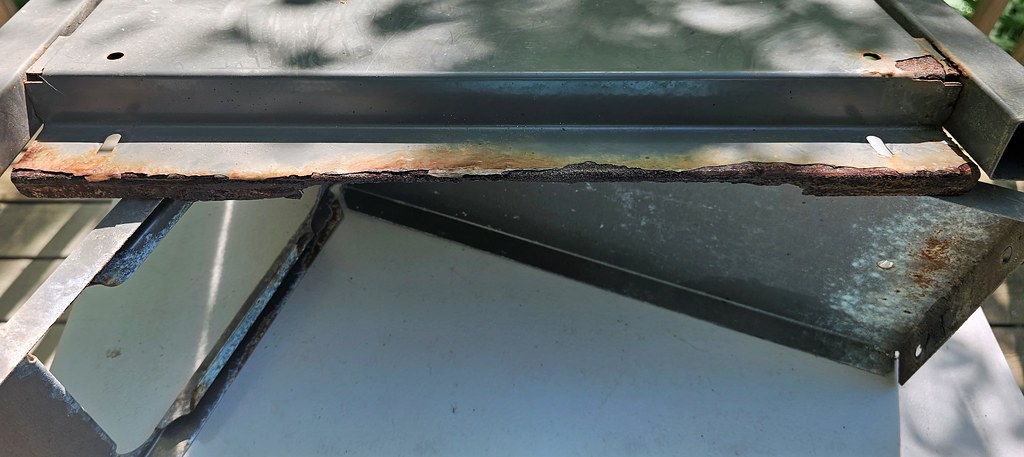Jay D in Jersey
Closed Account
In reality, no one can say that newer Webers will not stand the test of time like the decades old ones under similar standards of care and maintenance.
looking on a larger screen they do look like SS rod, which is a plus.Dan, those appear to be stainless steel rod grates. The crossbar in the middle is on the bottom so they aren't upside down.
I'm not so sure the average consumer buying a grill cares too much about maintenance of the grill. I think many issues related to longevity and reliability are due to maintenance or lack of it. Newer Webers might require a bit more maintenance than the older generations but will likely last decades if maintained reasonably well...even with thinner walls, etc...
You've covered a lot of ground here on multiple topics so I'll condense it down to relevant ones at hand:What maintenance would you recommend? I have to agree with @LMichaels on this one even though I am not sure if he has yet to come on board with the beauty and benefits of grillgrates, on all grills
I spent 20 years working in the engine and boiler room of Navy ships doing operations and maintenance of the steam plants in a very hostile environment. Including making recommendations to Planned Maintenance Schedules, PMS for equipment.
Just finished cutting a plywood floor plate for my 2016 Genesis it was the short year between the sidewinders and the Genesis II. Now that I test fitted it I can spend the rest of Memorial Weekend 2023 grinding rust and applying rust converter. Then self etching primer then Massey Ferguson gray paint. Which is close to Navy machinery grey and closer than haze gray and underway on the hulls of ships.
Burn through on the cookbox, exactly what maintenance would you do to prevent it?
Panels on cabinet have rust blistering through even on areas that are not on edge. Exactly what maintenance would you do to prevent it?
The straw that broke the camel's back and is causing me to rehab the whole grill is the manifold bolts that attach to the cookbox rusted off and the manifold fell off. Exactly what maintenance would you do to prevent it?
Not how I would like to spend the next 3 days and already have more hours into it than I am willing to admit just researching. But thanks to this site it has paid off or at least hope it does in the long game.
They are a shadow of what they used to be. My kettles and WSM are still solid as a rock. The gasser not so much. Hopefully I will get another ~5+ years out of it. Once rust starts it is a never ending battle that I have fought before. I paid $800 all in 8 years ago. If I fire it up 2x a week for 8 years that is a dollar a pop for hitting the ignitor to date. Which is pretty close to accurate. The new ones are around twice that much. I stuggle with justifing the cost at $2 a cook. And that is not counting fuel cost.
And I use mine year around doubt many people use theirs as much as I do with the exception of those on here. What is this grilling season people talk about?! I have grilled in the twenties below zero but call it quits in the thirty belows. Wind Chill not taken into account.
I still can't wrap my head around Larry having two pellet grills, it just doesn't compute. Welcome to the dark side Larry.Steve, not weird at all. It's why I have 2 pellet poppers. The pellet grills are what I now gravitate to most of all. So now the smaller Member's Mark will live in the garage, Ready for use when I have a hankerin' for Q and don't want to freeze my cajones off or chisel off 3 inches of ice to get to it. If I can wiggle a bit more room in there, I may even stick the Q in there as well. Of course on a nice (ha) day. I could still work my way out to the deck grill(s).
25-30 mph winds with gusts to 50 has put the stop to that
You've covered a lot of ground here on multiple topics so I'll condense it down to relevant ones at hand:
1. Maintenance, as in inspecting, cleaning and addressing known areas of rust and corrosion by known methods(see #4) before they become a problem.
2. Grillgrates has nothing to do with the discussion.
3. Charcoal burning kettle grills have nothing to do with the discussion.
4. Cleaning, oiling, scraping and painting...you know, PMS as you mentioned before known problems become problems. Things most consumers pay little attention to.
5. Not sure what cooking at -20 has to do with it it but maybe something.
6. Cost per use is an extreme variable...some buy new, some buy used, some find at the curb, some get gifts, etc...
7. I'll go out on a limb here and state that from my experience and observations, the Weber GS4 burner setup is superior in every way vs the older round tube burners and vulnerable crossover tube system. Better, thicker, superior design, better stainless steel.
I'm not sure what "burn through on the cookbox" is. I've never seen it and don't recall seeing any mention of it here. Either way it's not a common issue. Warped cookbox, yes but doesn't seem to be a very common issue either and seems correctable.




The manifold bolt rusting through is a new one on me. I thought those were made out of stainless steel. The rust on the arms of the manifold is to be expected, although yours looks salvageable. Are you getting the new one under warranty as well?
25 years warranty on burners???

